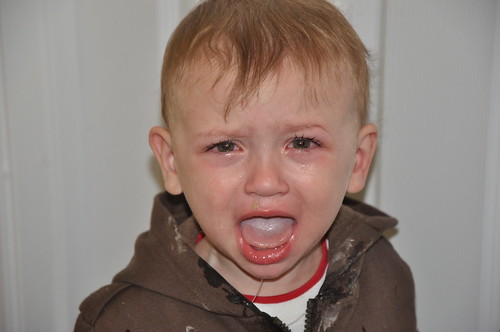Everyone gets angry from time to time, and that includes children. Dealing with an angry child can be frustrating, but fortunately, there are things that can be done to make it easier. Below are three quick ways to calm down an angry child:

Remove The Child from The Situation That Is Making Him or Her Angry
The first thing that parents and caregivers should do is to remove the child from the situation that is causing him or her to become angry. For example, if a child is angry because other children are picking on him or her, then it is best to put the child in another room.
Try to Console The Child When He or She Is Angry
It is important to remember that anger is often a way to hide hurt feelings. That is why people should try to console an angry child. There are endless ways to console an angry child. Speaking in kind words is one of the ways that people can console an angry child. Parents and caregivers can say things such as, “It is going to be alright” and “ I am here for you.” Additionally, one should try to make the child laugh. Laughing is a simple way to release a feeling of anger. If the child feels loved and appreciated, then he or she will most likely calm down much quicker.
Use Appropriate Discipline
Even though anger is a normal part of life, many children begin to realize that they can get their way by pitching a fit. For example, a child throws a fit every time that he or she wants something in the store. The parent or caregiver gives into the child every time. Children who always get their way when they have a fit will most likely continue that behavior. That is why discipline is so important.
Discipline is the act of training someone to obey rules. If children are not disciplined, then they will not understand that there are some things that they just cannot do. Parents and caregivers have to set firm, reasonable limits for children.
There are endless ways to discipline a child. However, it is important for parents and caregivers to remember that positive discipline usually works best on children. Furthermore, a child should never be disciplined in anger. Harsh discipline is counterproductive. Not only is it harmful, but it can also encourage a child to become angrier and act out more.
Parents and caregivers should always be consistent with discipline. If a child understands that there are consequences for each of his actions, then he or she will be less likely to act out in anger.
Dealing with an angry child is not an easy task. Fortunately, parents and caregivers can make this task easier by removing the child from the situation. They should also make sure that they console the child when he or she is angry. Furthermore, it is important to discipline children. Again, even though anger is a natural emotion, children have to learn to control their anger.
Sarah Johnson is a preschool administrator and guest author at Super Scholar, where she contributed to the guide to top-rated online early childhood education degree programs.

